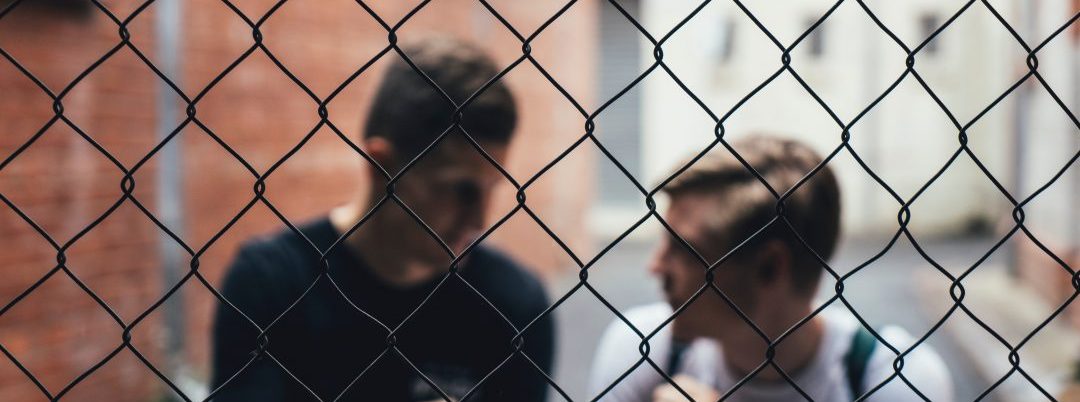
- It’s hard to believe, but our closest friends are capable of manipulating us in ways we’d prefer not to imagine.
- One very dangerous form of this manipulation is gaslighting: or manipulating someone using psychological means into questioning what they know to be true.
- In close relationships, gaslighting involves shaming someone for their choices and isolating them to reinforce that shame without hope for relief.
- It’s often more difficult to identify gaslighting in a close relationship; that said, it is possible and it is important.
- To aid your efforts in identifying gaslighting, you should take it slow, listen to your body cues, remember what a true connection looks and feels like, try to understand your weaknesses (as a gaslighter would see them), and consult a professional for assistance.
They say that friends are the family you choose. You don’t have to spend any ounce of your time with them, but you want to: you enjoy each other’s company; you support each other through the triumphs and the losses; you really get each other. Or at least that’s what we can all hope to find in a friend… in reality, our friends can deceive us. And employ the ultimate form of manipulation to get what they want from the relationship.
How to Spot Gaslighting in Close Relationships
The truth of the matter is that those closest to us are those most likely to gaslight us, as this form of manipulation thrives off of intimacy. If you aren’t familiar with this term, gaslighting is manipulating someone using psychological means into doubting their own sanity, intuition, and reality. Those who employ it do so for personal gain and often possess narcissistic traits. Again, one would rarely suspect a friend of gaslighting them, but it does happen. Jor-El Caraballo, a therapist and co-creator of Viva Wellness, explains what gaslighting often looks like in a friendship:
“Gaslighting is a pattern of shaming and guilting someone to feel inferior or crazy. It’s often about the abuser maintaining control. In close relationships, like friendships or intimate relationships, you will see a pattern of shaming someone for their choices and potentially also isolating them from forces that could reinforce their worth or objective truths (e.g., isolating person from other friends, family who can recount truths or see them more clearly).”
Combat Your Gaslighting Friends: 5 Tips
Because we don’t expect those closest to us to deceive and manipulate us in such a way, it can be even more challenging to identify gaslighting behavior among our friends—but it’s important that we do. Here are a few professional tips for identifying and them combatting the manipulation of a friend:
1) Take it slow.
“Once you recognize what’s going on, I advise my patients to take one step at a time in trying to remove themselves from the situation,” says Psychiatrist Dion Metzger, MD. “Confide in a trusted friend and realize you may have to make a sacrifice to get out of this relationship dynamic. Make your mental health a priority and know the sacrifice will ultimately be worth it.”
2) Listen to body cues.
Julie Williamson, a licensed professional counselor, says you should be mindful of how you feel around the person in question: “Someone can defend against gaslighting by being mindful of what they’re experiencing in their body and what their mind is telling them. If something happens and they suspect the other person will attempt to convince them that it didn’t happen, writing it down, along with the date and time, can serve as a reminder that they did experience the incident.”
3) Remember what a real connection looks like.
It’ll also help to stay in touch with what a real and intimate connection looks like. “Protecting oneself from gaslighting requires one to see through seductive maneuvering by being intelligently guarded,” says Sheri Heller, licensed clinical social worker. “Do not be swayed by platitudes and accolades. Be realistic as to what real intimacy and connection looks like. Trust requires time and shared vulnerability that is grounded and balanced. Having a strong sense of self and conviction in one’s perceptions ensures that the deceptive maneuvering of the stealth abuser will not take hold.”
4) Tap into your inner gaslighter.
Grant Brenner, a psychiatrist and co-author of Relationship Sanity: Creating and Maintaining Healthy Relationships, says it’s worth understanding your weaknesses, as a gaslighter would see them: “One of the best ways to combat gaslighting is to be in touch with your inner gaslighter. Human beings are experts at deception, including self-deception. If we learn about our own blind spots, our own triggers and interpersonal patterns—as well as how we respond emotionally—we become both less appealing to gaslighters and other workplace bullies.”
5) Consult a professional.
Finally, if you aren’t sure about a particular friendship or you need some additional guidance, consider talking with a mental health professional. “When you feel like you are going crazy (because a gaslighter is making you feel that way) be sure to ask the right people. Meet with a therapist so that you can get fresh ears on the matter as friends can sometimes be skewed in their opinions,” says Kim Chronister, PsyD, a licensed clinical psychologist.
Let’s keep in touch! Sign up to receive our newsletter:
Start a Relationship with An Exceptional Counselor
- Skilled and caring professional counselors
- Accepting all major and most insurances
- High-touch customer service & premium benefits
- Same- or next-day appointments
- Ultra-flexible 23.5hr cancellations













